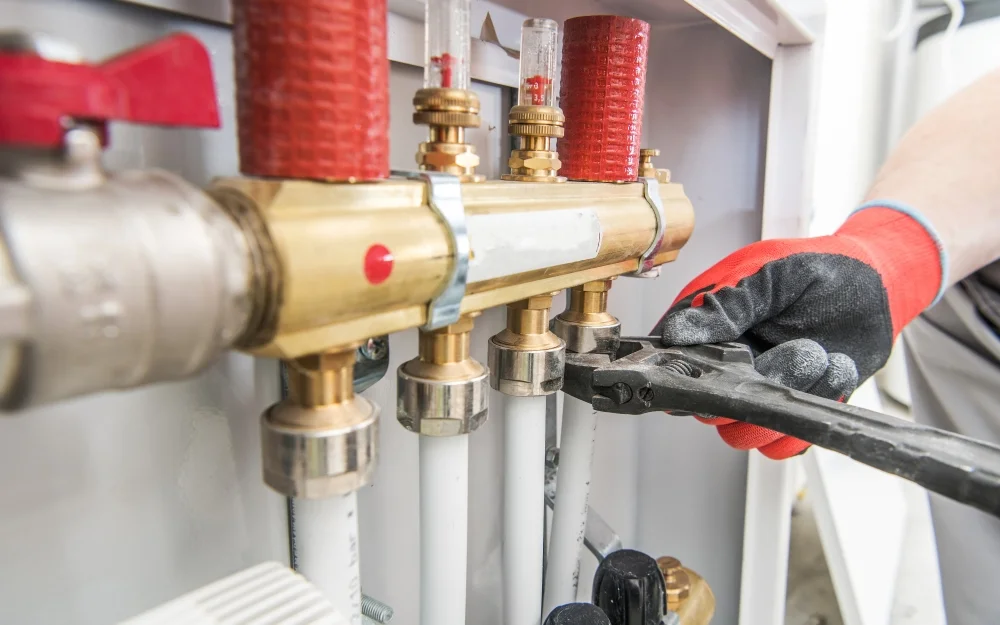A reliable heating system is essential to keep your home warm and comfortable as winter approaches. But how can you tell when it’s time for a repair? Not all signs are obvious; if overlooked, minor issues can quickly become major problems that disrupt your comfort and budget. This guide will walk you through the signs that indicate your heating system may need attention and why prompt action matters.
For those in Cork and Kerry, professional heating plumbing services are just a call away, ensuring that your system stays in top shape when needed.
Unusual Noises: When Your Heater Speaks Up
If your heating system starts making unusual sounds, it’s often a signal that something is wrong. While older systems can get noisier over time, sounds like banging, screeching, or rattling are not typical and should not be ignored.
For example, banging noises could indicate loose or broken components, while a screeching sound may suggest issues with the motor or fan. It’s similar to a car making strange noises; while it may continue running for a while, ignoring these sounds often leads to larger issues.
Solution: Calling in a heating plumbing services professional can help identify and fix the root cause before it escalates into a costly repair.
Inconsistent Temperatures: Hot and Cold Spots
Do you notice certain rooms are warm while others stay chilly? If your heating system isn’t distributing heat evenly throughout your home, it’s a sign of a problem. This issue can arise from blocked vents, duct leaks, or even a malfunctioning thermostat.
For instance, in some homes, the upper floors remain warmer while the lower floors stay cold. This is often due to ductwork issues or poor airflow. When your system can’t maintain a consistent temperature, it’s working harder than it should, which can reduce its lifespan.
Solution: A quick inspection from a heating plumbing services expert can locate and resolve these issues, ensuring every corner of your home is warm and cozy.
Rising Energy Bills: A Costly Clue
Have you noticed an unexplained increase in your heating bills? While energy costs may fluctuate slightly, a significant spike can indicate an inefficient heating system. A poorly maintained system has to work harder to produce the same results, leading to higher energy consumption.
Think of it like a car that hasn’t been serviced in a while; it will consume more fuel and perform less effectively. Your heating system works similarly, drawing more energy when it’s struggling to meet your home’s heating needs.
Solution: Scheduling regular maintenance with heating plumbing services can improve efficiency, reduce your energy bills, and increase the system’s lifespan.
Frequent Cycling: A System That Won’t Stay On
If your heating system is constantly turning on and off (also known as short cycling), it’s a clear indication of trouble. Short cycling not only disrupts your comfort but also strains your system, leading to more frequent repairs and a shorter lifespan.
For example, if you set your thermostat, and the system only runs for a few minutes before shutting off, then cycles back on shortly after, something isn’t right. It could be due to a thermostat issue, a clogged filter, or an improperly sized system.
Solution: An expert in heating plumbing services can assess the situation, correct the cycling issue, and restore your system’s efficiency.
Weak Airflow: When the Warmth Doesn’t Reach You
Weak airflow can result from multiple issues, such as blocked vents, a failing blower motor, or even a clogged air filter. Without adequate airflow, your heating system can’t distribute warmth effectively, leaving some rooms feeling cooler than they should.
Imagine blowing up a balloon with a small leak; it takes much more effort and never reaches full capacity. Your heating system operates similarly when the airflow is restricted, working harder to deliver less heat.
Solution: Regular maintenance can prevent weak airflow by keeping the system’s components clean and functional. A heating plumbing services professional can clean or replace filters, check ductwork, and ensure optimal airflow.
Strange Smells: When Warm Air Doesn’t Smell Right
When you first turn on your heating system after a long period, a slight burning smell is normal. However, if the smell persists or you notice musty, rotten, or chemical odors, there could be a serious issue. Burning smells can indicate electrical issues, while musty odors often mean there’s mold or mildew in the ductwork.
Solution: Unusual smells should never be ignored. Contacting heating plumbing services can help pinpoint and address the source, whether it’s an electrical issue, a filter problem, or mold in the ducts.
Persistent Cold Air: When Heat Fails Altogether
One of the most obvious signs your heating system needs a repair is when it blows cold air instead of warm. This could be due to a failing pilot light, thermostat issues, or other internal malfunctions.
For instance, if your thermostat is set to heating mode, but you still feel cool air, it may be time for a check-up. A professional can quickly diagnose and correct the issue, helping you avoid a complete system breakdown.
Solution: Promptly calling heating plumbing services can restore warmth to your home and prevent the issue from worsening.
Unresponsive Thermostat: The Control Center Issue
The thermostat is the “brain” of your heating system. If it’s not working correctly, you may find that your home’s temperature is consistently off from what you set. For example, if you set the thermostat to 22°C and it remains stuck at 18°C, your thermostat might be malfunctioning.
Older thermostats may need recalibration, while newer smart thermostats might require software updates or troubleshooting.
Solution: A heating plumbing services technician can recalibrate, repair, or replace your thermostat, ensuring your heating system responds accurately.
Pilot Light or Ignition Problems: No Spark, No Heat
For systems that rely on a pilot light or ignition, issues can prevent the heater from producing warmth altogether. A malfunctioning pilot light could result from a worn-out thermocouple, a clogged burner, or improper gas pressure.
Imagine trying to light a candle with a broken lighter; without the spark, you can’t get the flame. Similarly, when the pilot light or ignition fails, your heating system can’t deliver heat.
Solution: Professional heating plumbing services can safely address pilot light and ignition issues, restoring your system’s ability to heat effectively.
The System’s Age: When Replacement Might Be the Best Option
Heating systems typically last between 15-20 years. If yours is nearing this age and frequently needs repairs, it might be more cost-effective to consider a replacement. Older systems become less efficient over time, even with regular maintenance, and may not meet modern energy standards.
Solution: An assessment from a heating plumbing services provider can help you decide if it’s time for an upgrade, offering insights into newer, energy-efficient systems that could save you money in the long run.
Conclusion
Recognizing the early signs that your heating system needs repair can save you from unexpected breakdowns and high repair costs. By paying attention to unusual noises, weak airflow, cold air, and other red flags, you can catch issues early. Regular maintenance with professional heating plumbing services keeps your system running smoothly, extends its lifespan, and ensures your home stays warm and comfortable all winter.
Whether you’re noticing strange sounds or experiencing uneven heating, don’t wait for a small problem to become a big one. In Cork and Kerry, qualified heating plumbing services are readily available to keep your heating system in top shape. With timely repairs and expert support, you can enjoy a cozy, worry-free winter.

